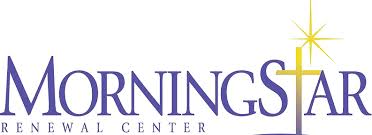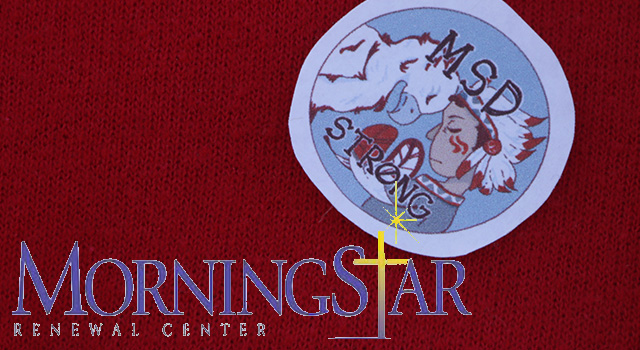By Priscilla A. Greear - Florida Catholic
MIAMI | With school, nightclub and workplace shootings ripping apart Americans’ sense of security, Sue DeFerrari of the MorningStar Renewal Center and other bereavement specialists felt compelled to reach out in pastoral response to the grief-stricken. So MorningStar and Global Grief Support’s ecumenical committee began planning an initiative to empower churches and the wider community to provide more effective spiritual support to the bereaved�even before Parkland.

When the disturbingly familiar horrors unfolded at Marjorie Stoneman Douglas High School, MorningStar opened its doors in residential Pinecrest to mourners. The committee then mobilized to network with pastors, pastoral and school leaders and others in the Catholic and broader Christian community of Broward County to offer “Grief Support in the Aftermath of Violence.” Advertised in Catholic and other Christian schools and churches, the free community workshop of education and support for those who care for the bereaved took place April 11 in space provided by First Church of Coral Springs.
According to DeFerrari, MorningStar’s director, the three-hour workshop drew about 60 participants ranging from lay and ordained ministry leaders, including Lutheran and Methodist pastors, teachers, first responders, to a Red Cross chaplain and parents whose children had friends affected by the shooting. Several attended from St. Elizabeth Ann Seton Church in Coral Springs and St. Thomas Aquinas School in Fort Lauderdale.
“It was a very nice mix, an evening of prayer, learning and grief, really supporting one another and saying what is the role of the Church in supporting people like this,” she said. “You have to have people in our parishes who know, first, our limits, to say number one this is too much for me, I need to reach out to someone else. And then as well how to be present in something that is very complicated and very sensitive, hard for any of us.”
Speakers from Global Grief Support, a nonprofit which trains facilitators for grief support in faith communities, and DeFerrari addressed the grief process, support person’s role, and practical tools for running a support group.
“It’s realizing there’s no right way to grieve and that allows you to just be present to the person where they’re at,” DeFerrari said. “We were talking about complicated grief. People have seen blood, violence, bodies on the ground, it’s complicated. You have a kid who the next year is coming to confirmation and all of a sudden even though it’s a year out that’s going to come up.”
STILL SHAKEN
Over at St. Andrew School in Coral Springs, mental health counselor and catechist Maureen Johnson focused her regular parental workshop April 30 on “How to Speak to Children About Traumatic Events.” Parkland impacted many parish families.
“Some of the kids are having a difficult time returning to school for those that attend the school. The younger kids at St. Andrew’s, some of those kids are still shaken and as parents we’re shaken, so this was an event to help them with some wording to give to their kids when they’re talking to them,” Johnson said. “A couple of things I said were just to encourage the kids to express their feelings, encourage them to have a discussion and for the parents to be patient because sometimes the kids are ready to speak and sometimes they’re not,” she added.
Either way, Johnson advised parents not to be silent and fail to address the “elephant in the room” � that the massacre happened and affected their children. She also advised them against making unrealistic promises such as that they’ll “call the school every day to check on them.”
Teaching religious education, Johnson has seen how some children feel angry at God. “As parents we talked about how you maintain your faith when something like this happens and having that discussion with your kids,” she said.
Johnson provided information on community grief support resources. She encouraged families to turn to the parish as needed, whether attending its bereavement group, meeting with a priest or having children talk with their catechist. “There are so many facets of helping to heal from trauma but (talking about it) is definitely one of the things that may assist them and assist parents,” she said.
FAITH PERSPECTIVE
Speakers at the MorningStar workshop discussed the critical role of churches in bringing a faith perspective.
“As people of faith we know that is a huge component of how people deal with mortality and grief and it’s also one of the big nuts to crack when say someone dies of violence, a child dies or someone dies too soon. That’s one of the biggest struggles parents or anyone will have, why did God let this happen?” DeFerrari said. “We’ve got to allow people to pray and cry out to God and to see that God is with us there in it, to discover that themselves � we’re not going to convince them. That’s where you companion people. That’s what they come to discover. And when people of the Church are present to one another that is Christ being present.”
Continuing the initiative, the bereavement committee is now applying for grants and preparing to launch a 16-hour community grief ministry training program in fall 2018 at MorningStar.
“About 80 percent of people who attended wanted follow up training on dealing with complicated grief especially with an eye to forming better grief support ministries in their places of worship,” said DeFerrari, who holds master degrees in social work and pastoral theology.
Planners envision an intensive two Saturday faith-based training to learn methodologies to companion people through various types and stages of grief. “This is an opportunity to come to people who are experts in bereavement ministry and get trained and go back to your church and serve the people,” DeFerrari said.
She believes there’s a need for more long-term care for the bereaved beyond the funeral and delivery of meals immediately afterwards, as there’s never true closure, just moving forward. “We’re all going to face death but it’s the last thing we want to talk about. So something like this is to train people at the parish level to know how to companion and so that there’s a ministry in place. Once a month there’s a bereavement ministry and we can point people to it.”
GRIEF SUPPORT GROUPS
- Catholic Hospice offers grief support groups in churches and sites throughout the archdiocese. Contact: 305-822-2380 or e-mail to [email protected].
- Catholic Hospice also partners with Camp Erin, a weekend camp for children and teens dealing with the loss of a family member.
- For information, go to www.catholichospice.org.

